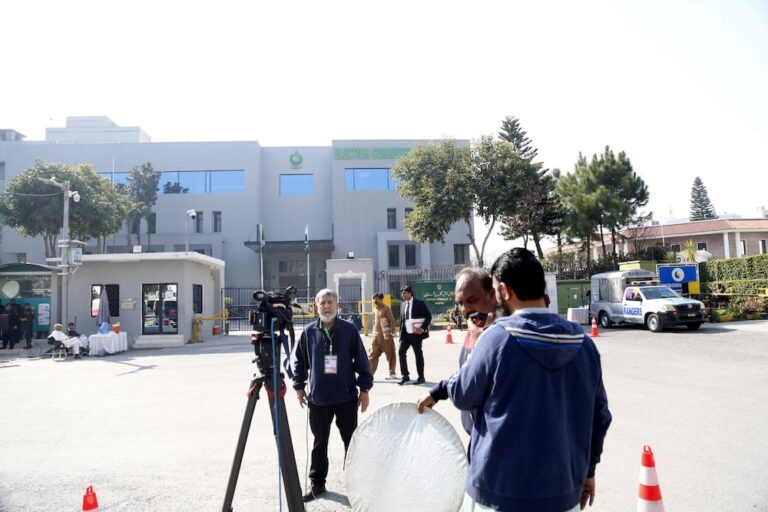More than 80 groups and individuals have voiced their concern about the grave implications of the measure on freedom of speech.
This statement was originally published on digitalrightsmonitor.pk on 22 May 2024.
A large number of civil society organisations and journalists have rejected the Defamation Bill, 2024, passed by the Punjab Assembly, terming the legislation a “draconian” and “regressive” tool to target journalists and general public.
In a joint statement released on Tuesday, a copy of which is available with Digital Rights Monitor (DRM), more than 80 civil society organisations and journalists have voiced their concern about the grave implications of the Defamation Bill, 2024 on freedom of speech in the country. The bill was passed by the Punjab Assembly on Monday amid strong protest from Opposition lawmakers and journalists’ bodies, whose proposed amendments to and request for a delay in voting for the bill were rejected.
“We outright reject the Punjab Defamation Bill (2024) as a gross infringement on the fundamental rights of freedom of expression and press freedom,” the statement reads. “This bill serves as a draconian and regressive tool to suppress dissent and criticism, particularly targeting journalists and the wider public.”
Referring to the bill’s provisions allowing individuals holding constitutional positions to be dealt with differently in case of defamation, the statement says that the legislation’s “explicit mandate of safeguarding ‘public officials’ against defamation is nothing short of an authoritarian maneuver, designed to shield those in power from accountability and scrutiny”.
Under the Defamation Bill, 2024, special tribunals will be set up to hear cases of defamation instead of district courts. Those found guilty of disseminating “fake news” would be penalised with a fine of Rs3 million, with the tribunals bound to conclude these cases within six months. However, for public officials, the cases will be taken up by high courts. The legislation will apply to print, electronic, and social media.
“The bill’s provisions, such as allowing defamation actions to be initiated without proof of actual damage and imposing extortionate fines, amount to nothing less than legal intimidation tactics,” the statement reads. “By replacing district courts with tribunals, the bill opens the door for undue interference.”
The signatories, which include leading rights organisations such as Media Matters for Democracy (MMfD), Digital Rights Foundation (DRF), Bolo Bhi, and Pakistan Press Foundation (PPF), have expressed alarm over the bill’s broad definitions of the terms “journalists” and “newspapers” to cover social media users. They say the bill sets a “dangerous precedent” for suppressing free speech on digital platforms. “The proposed punishments, including the possibility of blocking social media accounts, are disproportionate and antithetical to democratic principles.”
The statement urges the government of Punjab to take into account the concerns of civil society organisations and other stakeholders and “reverse” the bill. The signatories have called on the government to refrain from signing the bill into law and onboard stakeholders for inclusive consultations at a national level for any future attempts to addressing disinformation and hate speech online.



